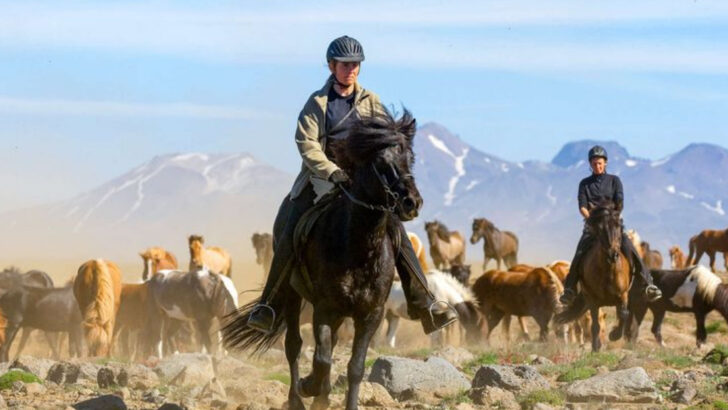Not all horses are built for the wild ride.
Some glide over rocky paths like they’ve got mountain goats in their family tree. Others? They trip over a twig and act like it’s sabotage.
Trail riding isn’t a lazy trot through daisy fields—it’s mud, hills, surprise deer, and the occasional “is that a bear?” moment. The wrong horse can turn a scenic afternoon into a chaotic mess of spooked rears and stubborn refusals.
So before you saddle up and head into the hills, find out which breeds eat rough terrain for breakfast—and which ones would rather stay in the pasture gossiping with the chickens.
Quarter Horse
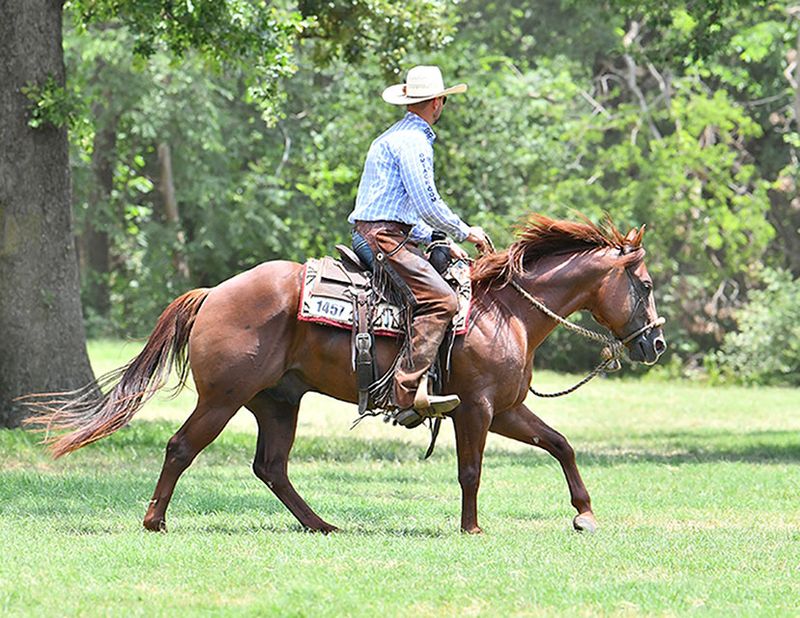
Known for their agility and calm demeanor, Quarter Horses excel on trails. Their compact build and strong hindquarters provide stability on uneven terrain. These horses are not just about speed but also embody a balanced temperament and a willingness to work. A rider on a Quarter Horse often feels a sense of companionship, forged through mutual trust on the trails.
In addition to their physical attributes, Quarter Horses’ intelligence makes them quick learners, adapting easily to new obstacles. Their versatility in different riding styles also makes them a popular choice among trail riders.
Arabian
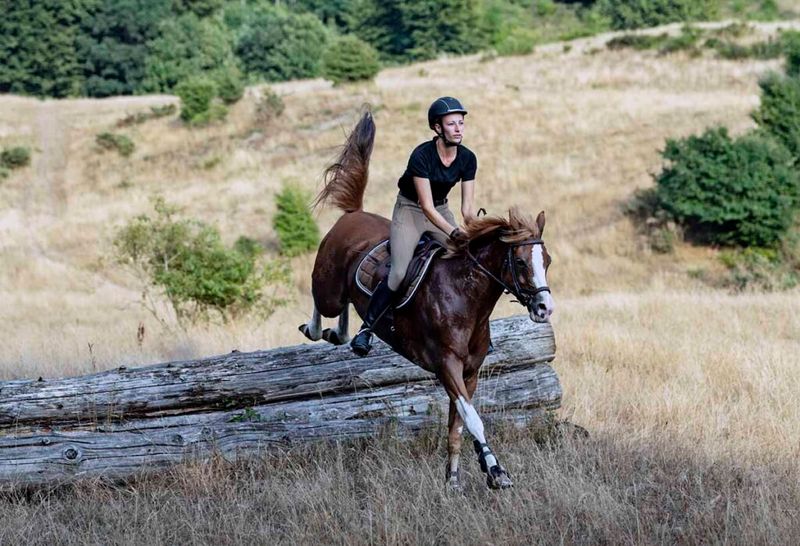
Arabians, with their endurance and spirit, are reliable companions on long trail rides. Their lean build and stamina allow them to excel in distance riding. These horses are known for their intelligence and sensitivity, making them responsive to rider cues. The bond between an Arabian and its rider is often described as intuitive and deep.
Though spirited, Arabians handle rugged trails with grace, their sure-footedness a testament to their desert heritage. Their vibrant presence and elegance add to the allure of trail riding, capturing the hearts of many equestrian enthusiasts.
Tennessee Walking Horse
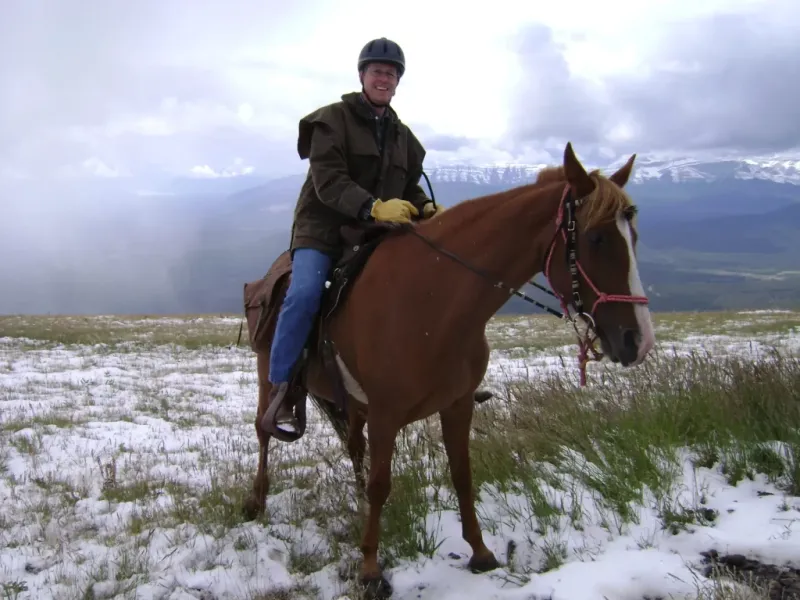
The Tennessee Walking Horse is famous for its smooth gait, making trail riding a pleasure for riders who seek comfort. Their unique running walk can cover ground efficiently without tiring the rider. With a gentle nature and willingness to please, these horses are favored by those who enjoy leisurely rides.
These horses are not just about comfort; they possess a calm disposition, making them excellent for navigating through wooded trails. Their endurance and ability to manage different terrains make them a favored choice among trail enthusiasts.
Mustang
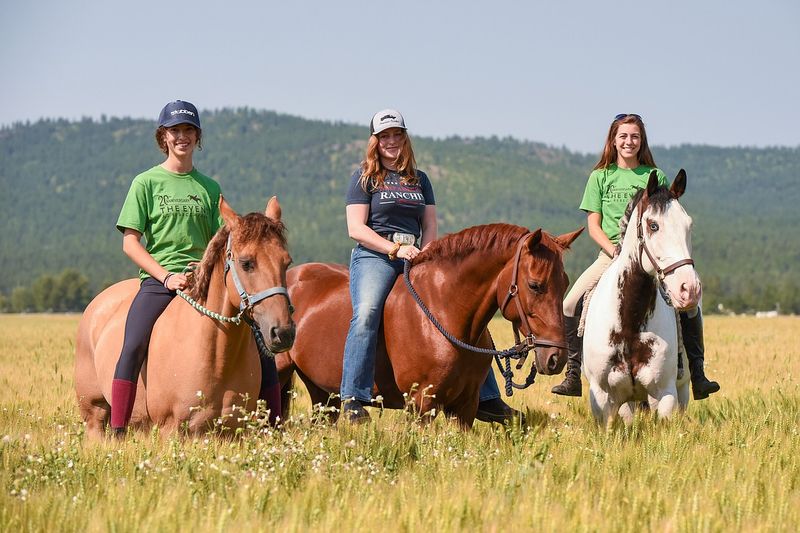
Mustangs are the embodiment of resilience and adaptability, qualities that make them superior trail horses. Originating from the wild, they possess an innate ability to navigate challenging terrains with ease. Their strong hooves and hardy nature make them less prone to injuries on rough trails.
These horses are known for their independent spirit, yet they form deep bonds with their riders. Mustangs are a symbol of freedom, and riding one on a trail is an exhilarating experience. Their storied history adds an extra layer of fascination to each ride.
Morgan

Morgans are known for their versatility and strength, traits that make them ideal for trail riding. Their compact size and strong build allow them to maneuver through various terrains with ease. With a spirited yet manageable temperament, Morgans offer a delightful riding experience.
The breed’s intelligence and eagerness to please enhance their trail capabilities, making them quick to respond to rider cues. Their endurance is commendable, and they can handle long distances without fatigue. Morgans bring a sense of elegance and history to the trail, enriching every ride with their presence.
Icelandic Horse
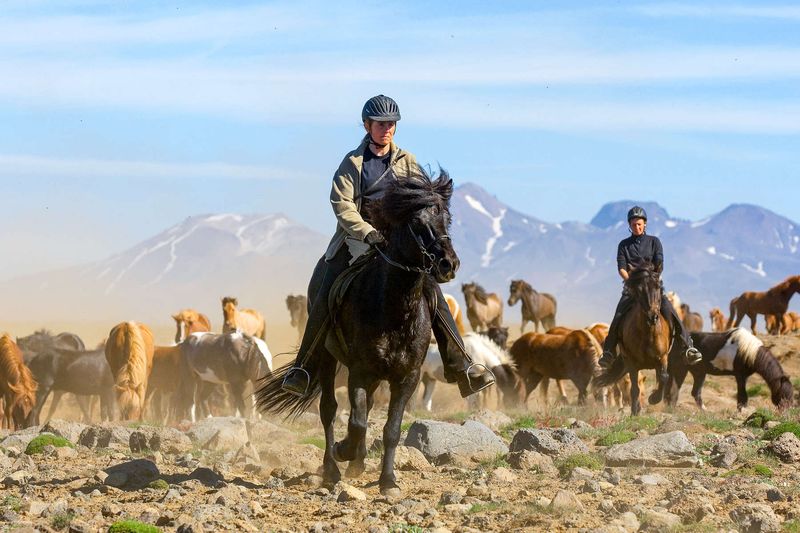
Icelandic Horses are renowned for their unique gait, known as the tölt, which provides a smooth ride across rugged landscapes. Their small stature belies their strength and endurance, allowing them to tackle challenging trails with ease. These horses are hardy and well-suited to cold climates.
Their friendly and curious nature makes them a joy to ride and work with. Icelandic Horses are sure-footed and agile, attributes that are essential for safe trail riding. Their rich history and cultural significance in Iceland add an intriguing dimension to their charm.
Appaloosa
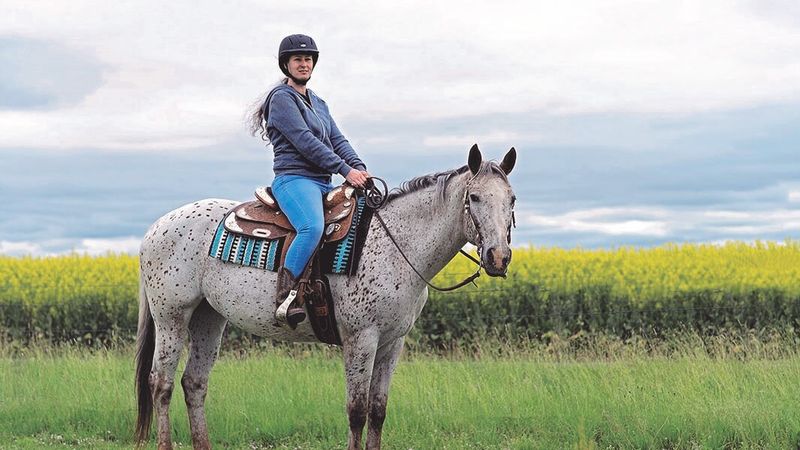
The Appaloosa, with its distinctive spotted coat, is not just about looks; it’s a reliable trail companion. Known for their strength and endurance, Appaloosas are well-suited for long trail rides. Their calm yet alert nature ensures they handle unexpected trail obstacles with grace.
Appaloosas have a rich history that enhances their appeal. They are intelligent and adapt well to different terrains, making them a versatile choice for riders. Whether traversing hills or forests, an Appaloosa’s unique blend of beauty and capability shines through on every ride.
Paso Fino
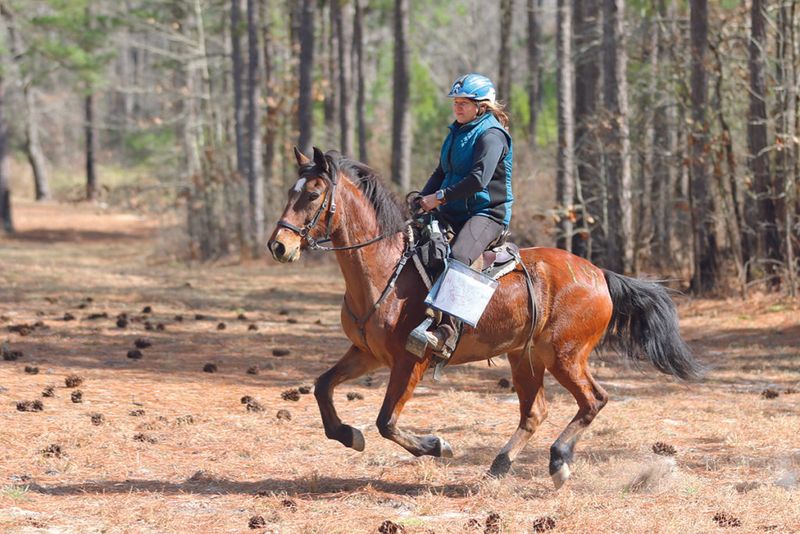
Paso Finos are celebrated for their smooth and rhythmic gait, providing comfort during long rides. Their lively yet gentle disposition makes them ideal for riders who enjoy a spirited ride without sacrificing comfort. Known for agility, they navigate trails with precision.
These horses offer a unique experience with their natural gait, distinct from other breeds. The Paso Fino’s history is steeped in elegance, stemming from its noble ancestry. Whether on a beachside path or a forest trail, riding a Paso Fino is a blend of comfort and style.
Missouri Fox Trotter
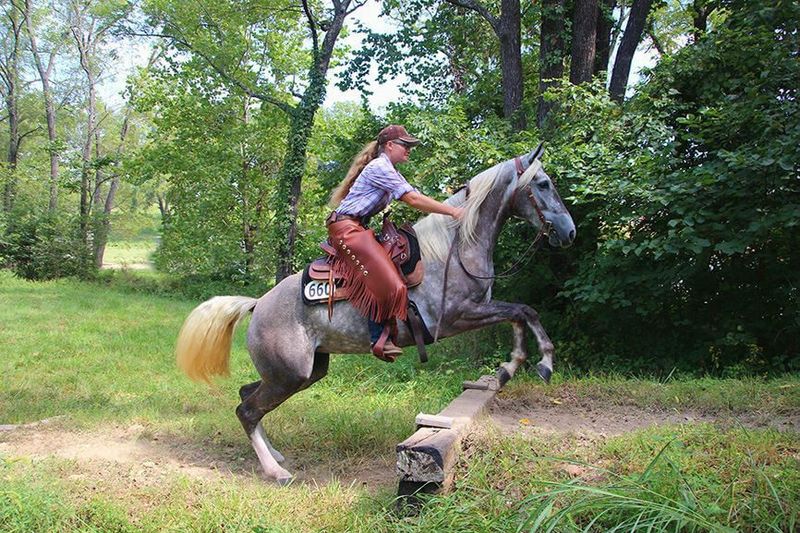
The Missouri Fox Trotter is lauded for its smooth, flowing gait, making it a preferred breed for trail enthusiasts seeking comfort. With a calm and willing attitude, these horses excel in various terrains, offering a pleasant ride for all levels of riders.
Their distinctive fox trot gait reduces rider fatigue, ideal for long-distance trail rides. The breed’s intelligence and composure ensure a safe and enjoyable experience, even on unpredictable trails. Missouri Fox Trotters bring a sense of grace and reliability that enriches the trail riding adventure.
Rocky Mountain Horse
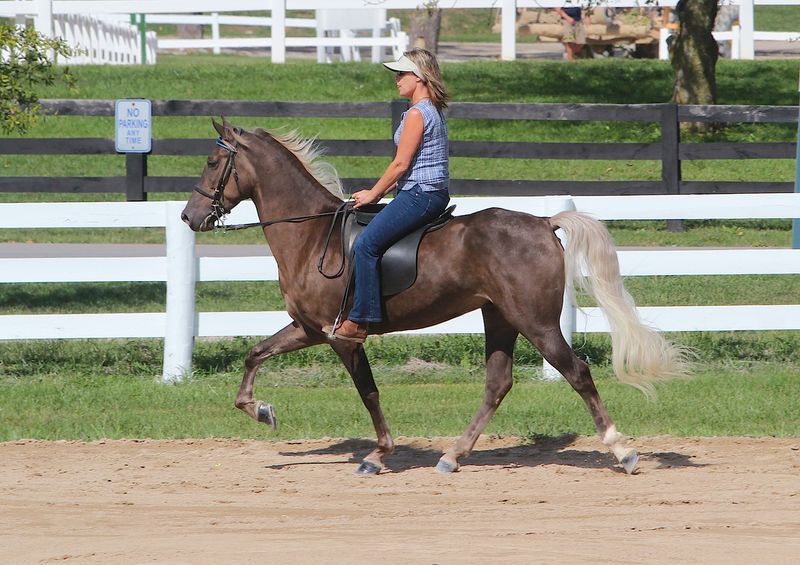
Rocky Mountain Horses are admired for their gentle nature and smooth gait, making them exceptional for trail riding. Their striking chocolate coat and flaxen mane add to their visual appeal. Known for their endurance, they handle steep and rocky trails with ease.
These horses are sure-footed and excel in mountainous terrains, offering confidence to their riders. Their friendly disposition makes them cooperative and enjoyable companions on any trail. The Rocky Mountain Horse’s blend of beauty and capability ensures a memorable riding experience.
Thoroughbred
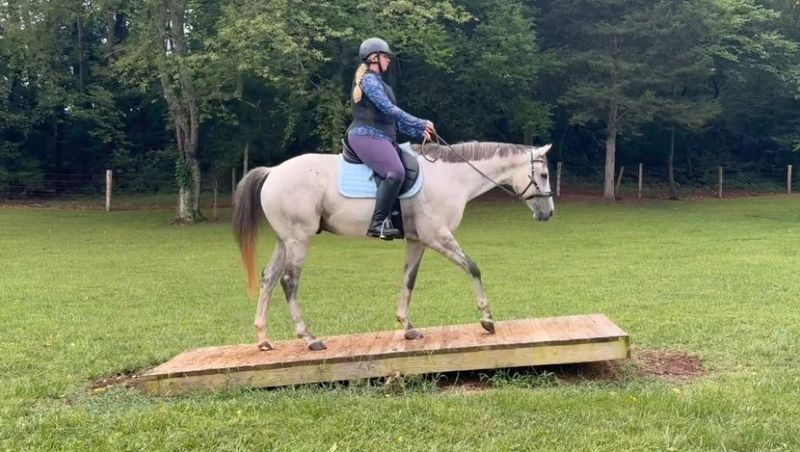
Thoroughbreds, known for their speed and agility, can struggle on rough terrains due to their long legs and lighter build. While their energy is unmatched, it can become a challenge on steep or uneven trails. These horses excel in racing and flat surfaces but may lack the sure-footedness needed for rugged paths.
Their sensitivity and spirited nature require experienced handlers when trail riding, especially on challenging terrains. While they bring enthusiasm to the ride, the risks associated with their build make them less ideal for rough trail conditions, necessitating caution.
Friesian
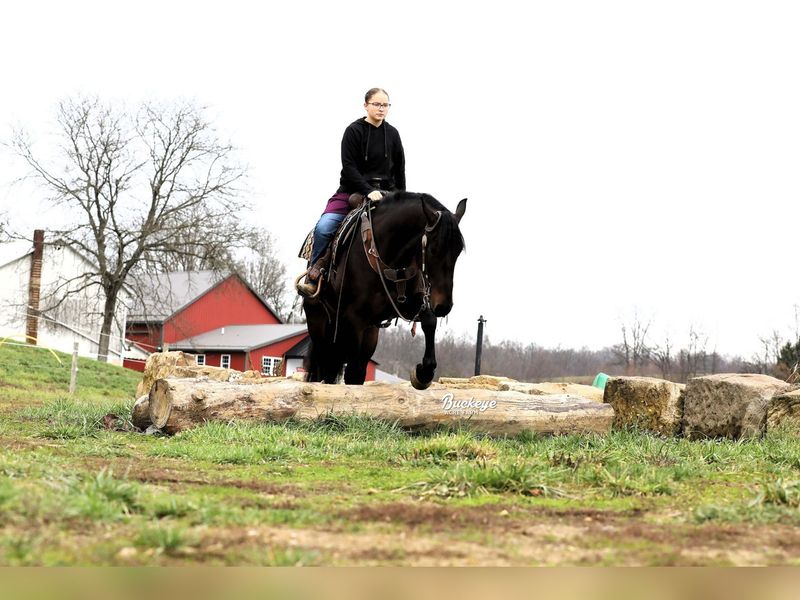
Friesians, with their majestic appearance, face challenges on rough terrains due to their large size and heavy build. Their long, flowing mane and tail, while beautiful, can become cumbersome on narrow or overgrown trails.
These horses are better suited for dressage and show rather than rugged outdoor adventures. Their energy levels and sheer power make them a spectacle to behold, but on uneven surfaces, they may struggle to maintain balance. Friesians bring elegance to the trail but require careful consideration when navigating challenging terrains.
Shire
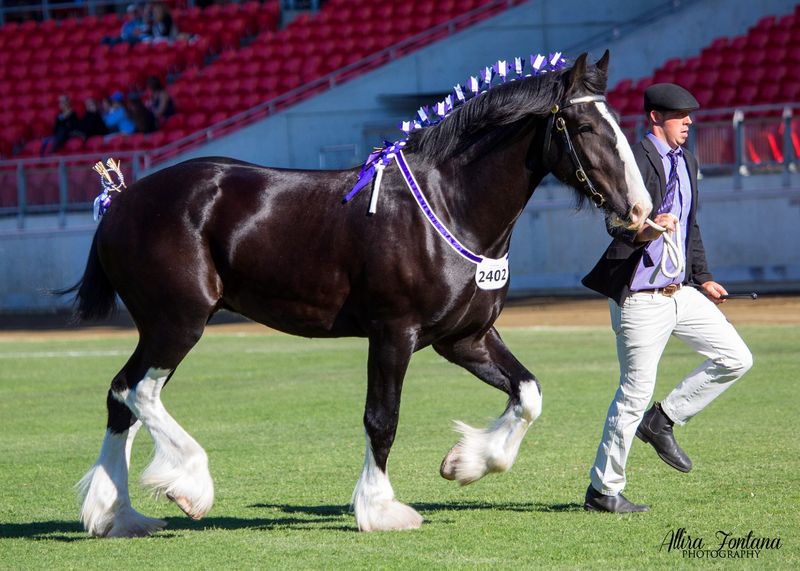
Shire horses, known for their immense size and strength, often struggle on rough terrains due to their bulk. While they excel in pulling heavy loads and farm work, trail riding presents a different challenge.
Their weight and size make them susceptible to stumbling on narrow trails or rocky paths. Despite their gentle demeanor and impressive stature, Shires require careful handling on challenging trails. Riders must consider the terrain before embarking on a trail ride with these gentle giants, as their build is not naturally suited for rugged conditions.
Clydesdale
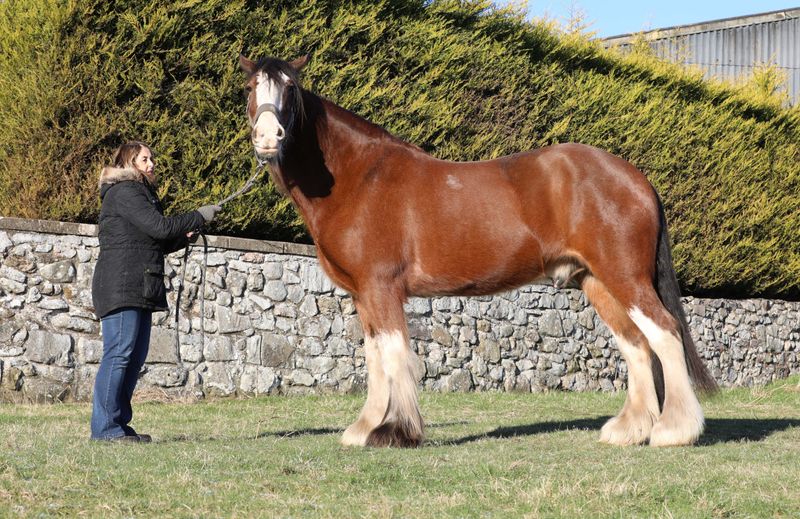
Clydesdales are iconic for their size and power, but these traits can be a hindrance on rough trails. Their massive hooves and heavy build make it difficult to maneuver through tight or steep paths.
These horses are more comfortable in open fields or pulling carriages than navigating rugged terrains. While their presence is commanding, they can tire quickly on challenging trails. Riders must be mindful of the terrain and adjust their plans accordingly, as the Clydesdale’s natural abilities are not aligned with rough trail adventures.
Percheron
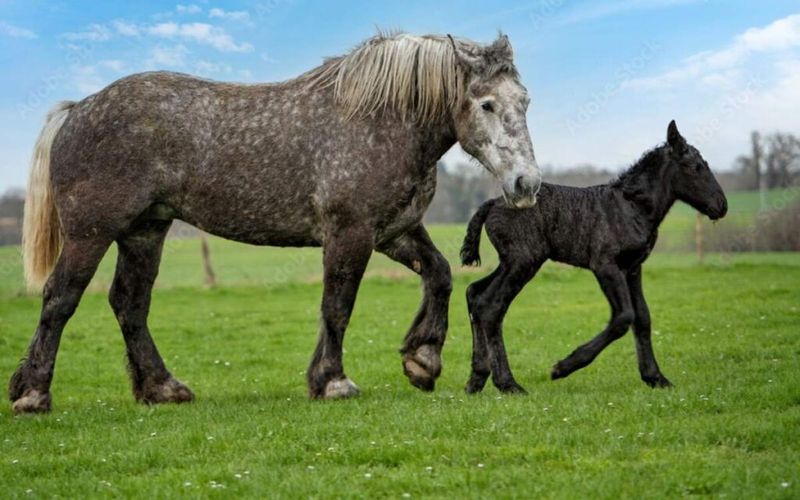
Percherons, known for their strength and endurance in farm work, may find rough terrains challenging due to their size. These draft horses excel in tasks requiring power but can struggle with agility on narrow or uneven trails.
Their calm nature and impressive force make them remarkable in plowing fields, yet trail riding introduces obstacles that may impede their progress. While they embody grace and strength, the Percheron’s bulk requires careful consideration when navigating challenging paths. Trail enthusiasts should evaluate trail conditions before embarking with these powerful horses.
Belgian Draft
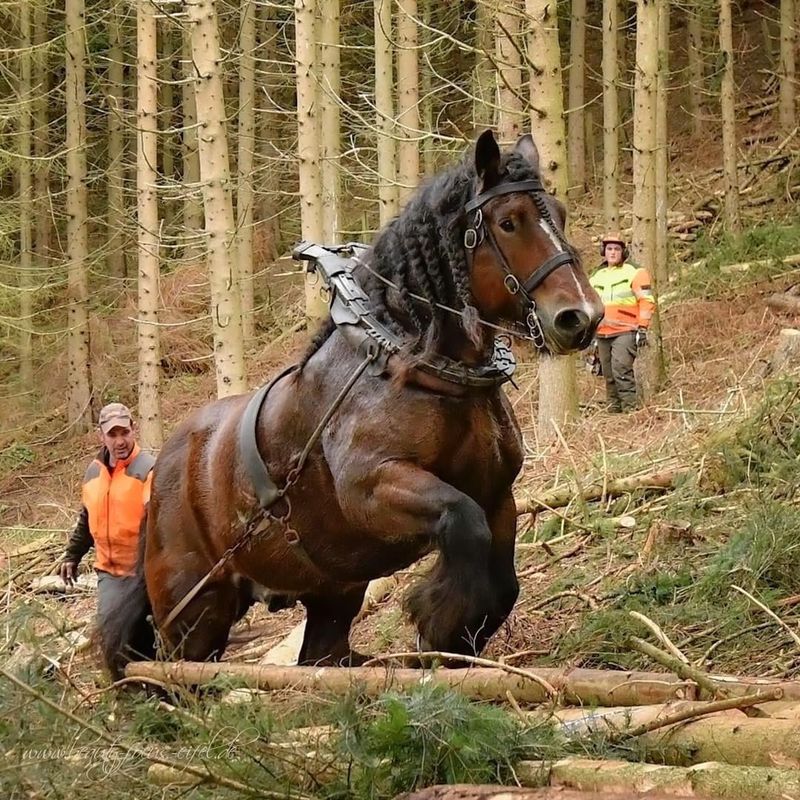
Belgian Draft horses, with their immense strength, are built for heavy pulling rather than trail agility. Their large hooves and strong muscles make them excellent for farm work, but these features can be cumbersome on rough trails.
The breed’s sheer size can hinder movement through tight or uneven paths, requiring a skilled rider to navigate safely. While they bring a sense of power and reliability, Belgian Drafts are not ideally suited for the demands of challenging terrains. Caution and planning are essential when trail riding with these gentle powerhouses.
Gypsy Vanner
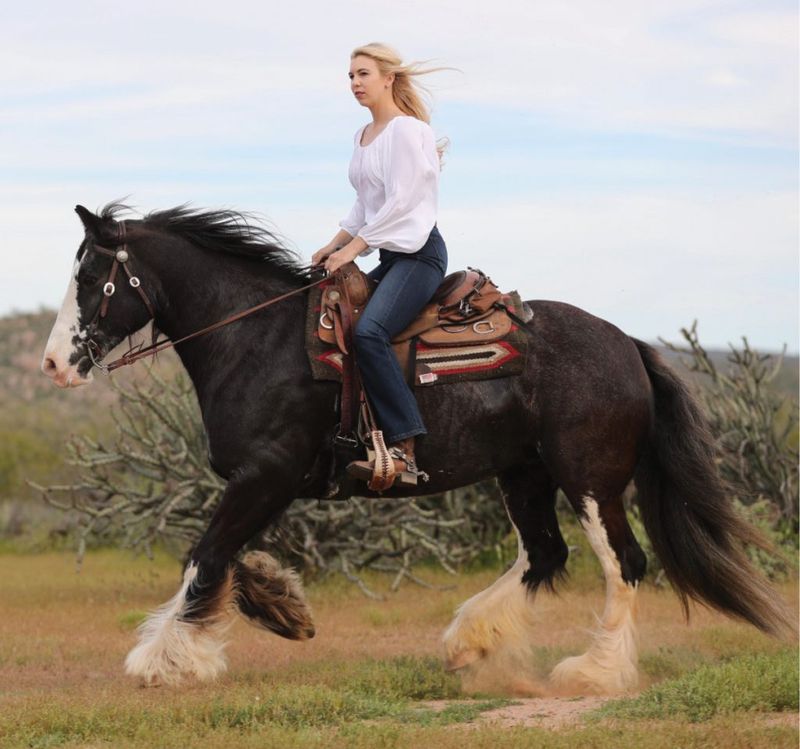
Gypsy Vanners, with their stunning, feathery appearance, face difficulties on rough terrains. Their long, flowing manes and tails, while visually striking, can become entangled on narrow or overgrown trails.
These horses excel in show settings or leisurely rides but may struggle with rugged trail conditions. Their unique beauty is accompanied by a need for careful grooming and trail planning. While Gypsy Vanners bring an element of enchantment to any ride, their suitability for challenging terrains requires thoughtful preparation and understanding of their limitations.
Lipizzaner
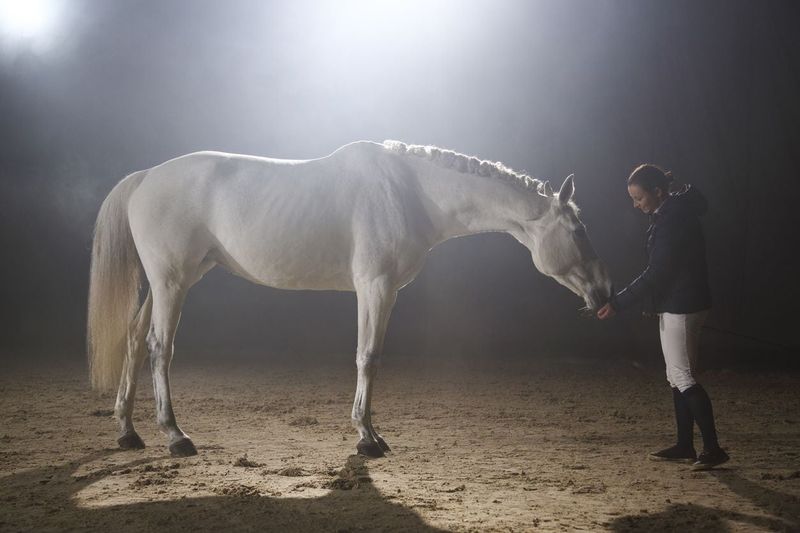
Lipizzaners, celebrated for their classical dressage performances, are less suited for rough trail riding. Their training focuses on precision and grace, attributes that shine in controlled environments but may falter on rugged paths.
Their powerful hindquarters and agility are better showcased in arenas rather than uneven trails. While they embody elegance and skill, Lipizzaners require a stable footing to perform their best. Riders should consider the terrain carefully, as the breed’s specialized training does not align with the demands of rough trail conditions.
Andalusian
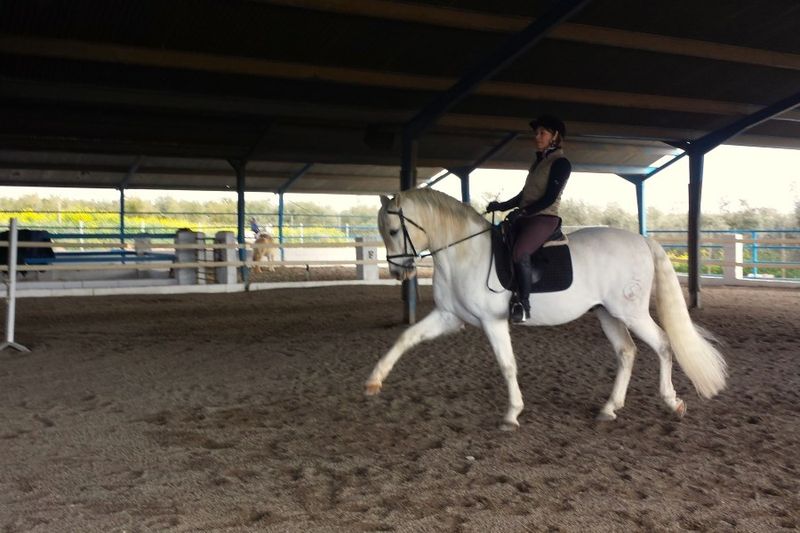
Andalusians are known for their grace and agility in controlled environments, but rugged trails can present challenges. Their muscular build and flowing mane are more suited for exhibitions than rough terrains.
While they bring poise and flexibility to the ride, their performance on uneven paths requires caution. Andalusians excel in dressage and show events, where their beauty and skill are appreciated. For trail enthusiasts, understanding the limitations of this elegant breed ensures a safe and enjoyable ride, avoiding terrains that may compromise their stability.
Warmblood
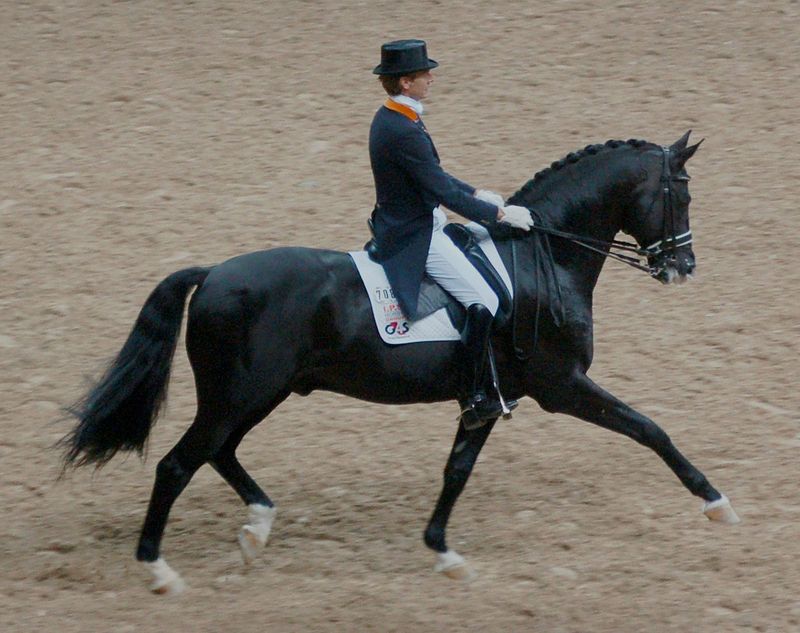
Warmbloods, popular in equestrian sports, can struggle on rough terrains due to their size and training focus. These horses excel in arenas where their strength and agility can be displayed in a controlled setting.
On rugged trails, their large frame can become a liability, requiring careful navigation. While they bring athleticism to the ride, Warmbloods need a stable environment to perform at their best. Riders must be aware of the terrain and plan accordingly to ensure the safety and comfort of both horse and rider on challenging trails.

